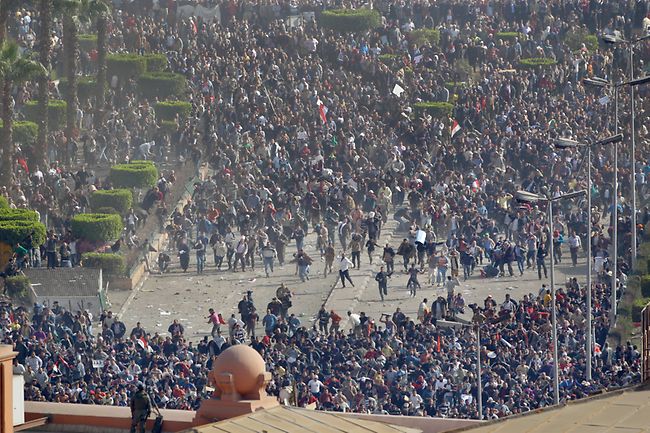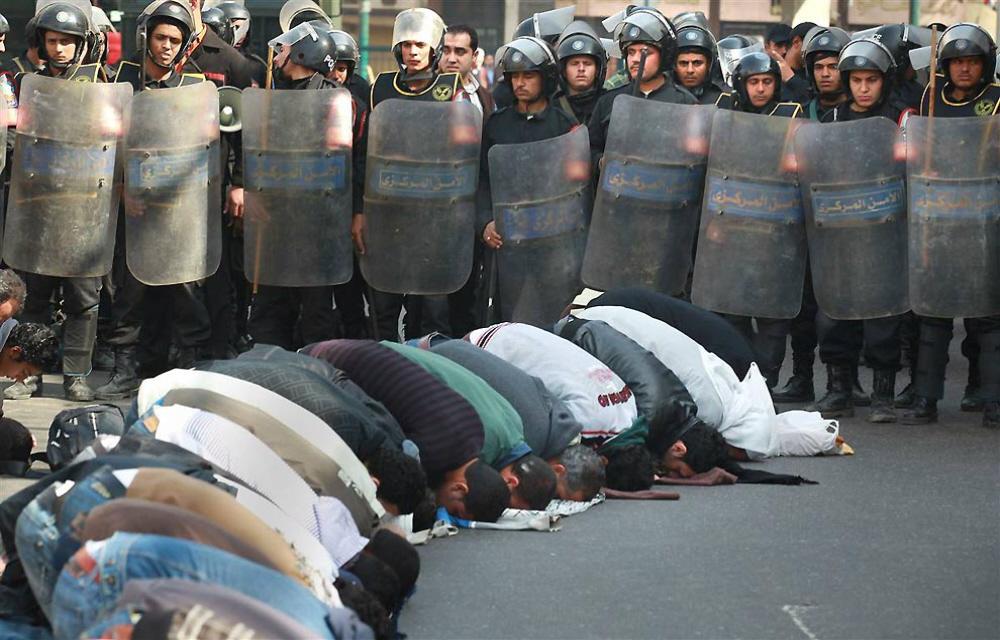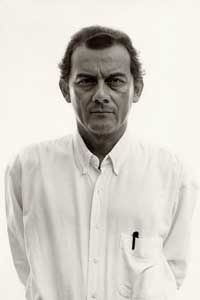Egypt 2011, El Salvador 1944: Horacio Castellanos Moya Compares Uprisings
by Joshua Barnes / August 9, 2011 / No comments
To the joy of the majority of Egypt’s population, Hosni Mubarak stepped down from his position as president of Egypt on February 18th 2011. Five months later, with a September election fast approaching, the protests continue in Tahrir Square, illustrating the country’s growing divisions.
I found some similarities between the current revolution in Egypt and the 1944 uprising in El Salvador that Horacio Castellanos Moya describes in Tyrant Memory, his latest novel to be translated into English. Both revolutions were led by brave students and professionals against a military dictatorship, both, at first, were apparently successful, and both brought military of the deposed regime to the power.
In this interview, Castelllanos Moya is not optimistic about the future of Egypt, or any country under military control. He also expresses his doubts about the effectiveness of popular uprisings and technology’s ability to bring about real democratic change.
I was hoping we could talk about any connections you see between the 1944 uprising in El Salvador and the uprisings currently happening in the Middle East and North Africa—especially Egypt…
These, of course, are different times. It is difficult to compare what happened in the 1940s and what is happening right now, but I think that there is a pattern to how dictatorships work. Dictators have one way of doing things: They take the life out of the country’s political institutions in order to control them.
For instance, for everybody but America Mubarak was a dictator . For America he was a president; he had elections, he had a parliament and he was elected. But of course, all of these democratic institutions—the political party, the congress, the electoral system—were controlled by him. The dictator always controls the political life of a country by removing the core of the political institutions and leaving only their facade, so that those institutions work for him. That has always been the same, so it’s a good way of comparing the two situations. That happened in El Salvador in 1944, in Egypt , and this is happening in Venezuela too.
There is also another pattern to dictatorships; the only real institution that they have is the army. That is where they get their power. In Egypt, Mubarak was an air force officer, and then he became a civilian. Chavez was a colonel in the army.
So that’s why, when you have this kind of revolutionary situation some people call it a “change of regime.” The dictator escapes, resigns, or leaves—he gives up his power—and the trend is that the military, as an institution, assumes power.
This is very risky for the people because the civilian institutions are very weak, since they’ve been dismantled by the dictator, who keeps them like you would keep a little dog. Both congress and the Supreme Court are under the dictator’s power. When he leaves, all that’s left is the army.
In El Salvador in 1944 the dictator left, but it was not exactly a change of regime. Why? Sure the vice president took power, then there were elections, but the army became the political party with a new name as a facade. It was the only political institution of the country. Even though we got rid of the dictator we had a military regime from 1944 until the 80s—forty years more! Forty years! They just changed presidents every five years. There were elections, they were elected, and all of them were colonels! That is what is happening in Burma and it is what is going to happen in Egypt if there is not a big change at another level.

Egyptian protesters in Tahrir Square, Cairo. February 2, 2011. Pro-Mubarak in foreground, Anti-Mubarak in background. Photo: AP
What “big change” is necessary for a change of regime to happen?
It’s very difficult to do that. It’s not only embedded in culture, but politics too. I’m not an expert on Northern Africa, but the revolution in Egypt is very similar to the one in El Salvador, where civil society banned together against the regime. The army supported the regime through the revolution, but at the end when they saw that the guy had lost, they said, “Leave! We are going to be in charge of this situation.”
But I think that the development of social organizations, political parties, and citizen networks is the only way to create new institutions with political agents that have the strength to confront the army and take back the power that is supposed to belong to civil societies under democracy. Otherwise, what you will have are military officers in every position of the government.
What makes a big difference in a society is not whether you have a dictator or a military regime. What makes a big difference is whether the army is the institution that controls the country, or is an institution that is controlled by the government. You can have elections and different presidents every five years, political parties and everything, but it’s all fake. You can have fake electoral commissions, fake judiciary commissions and whatever, but at the end the army decides and that’s the one that cuts the cake.
Do you think it’s possible for the internet and social media to affect a popular change in Egypt that was not possible in El Salvador in 1944?
It is one thing to organize an uprising, fight a political regime, and oust a dictator. The internet, as we know, has played an important role in that in North Africa. But it is another thing entirely to build political institutions and create a civilian power. I don’t know how the internet is going to work towards that. I have no idea. I think the fact that people are much more connected seems to work very well for the uprising—for creating action and getting people out, saying, “Go to this corner, go to this street! We need all of you there!” And immediately this message is sent around, and it works; the people go there.
But that is the beginning of the show. The second part of the show is, “Well this guy left. Now what are we going to do?” The same military that backed him are now in power. With this, the people don’t have a voice because the army is the prevailing institution. Of course, it helps to have political information available on the internet but it doesn’t have the immediate impact that it does during the uprising moment.

Protesters in prayer. Cairo, Egypt. Photo: Voices from Russia
How can you plan delegates or arrange political structures through the internet? It’s very difficult to organize.
Yes. You have to have meetings with people. The internet helps to convoke and send messages, but the process of building social institutions is different. It has much more to do with traditional politics.
That point presents an interesting complication. When the dictator leaves, the military is already poised to take power. The kind of political planning that you’re talking about has to happen with the immediacy of the revolution in order to have any chance at success.
That’s a point. With a very spontaneous movement you can get rid of a guy, but that spontaneous movement is not enough to fulfill the political positions left by this guy. Technology is useful at one level for democratic and authoritarian societies, but its limits in either system are the same. For instance, now in Spain there is this movement of Indignados, a group of mainly young people who call themselves that because they have indignation about their lack of jobs, the way the country’s been managed, and how the banks are robbing them—this kind of situation that you have in many countries, even here in the United States. But in Spain people got tired of it, and thanks to the internet and technology, they could convoke all of these people to the main parks and central areas of Spain to protest and have a kind of permanent demonstration against the way that the country was ruled. But after that, what happened?
The two political parties had elections in the middle of that movement. The right won because the left was in power, but nothing has changed. Transforming society is a very complicated challenge. You go out and you demonstrate, and you sit yourself in the central part of the city and you have these signs saying, “All of you fucking robbers, we hate you and you have to change,” and you stay there for a week, ten days, three weeks, four weeks, it doesn’t matter. And then the big debate in the government is if they are going to repress the people and free the street or not. But at the end they allow them to be there because they’re not really putting any risk into the heart of the government. “Yeah, it’s bad, but so what?” That’s what the government is saying, that’s what the political elite are saying. And so the internet allows a much more immediate organization to protest against specific political issues. But the next step is how these political demonstrations and energy become an organized political movement that takes political positions in power—that’s different; you need more than the internet to do that.





